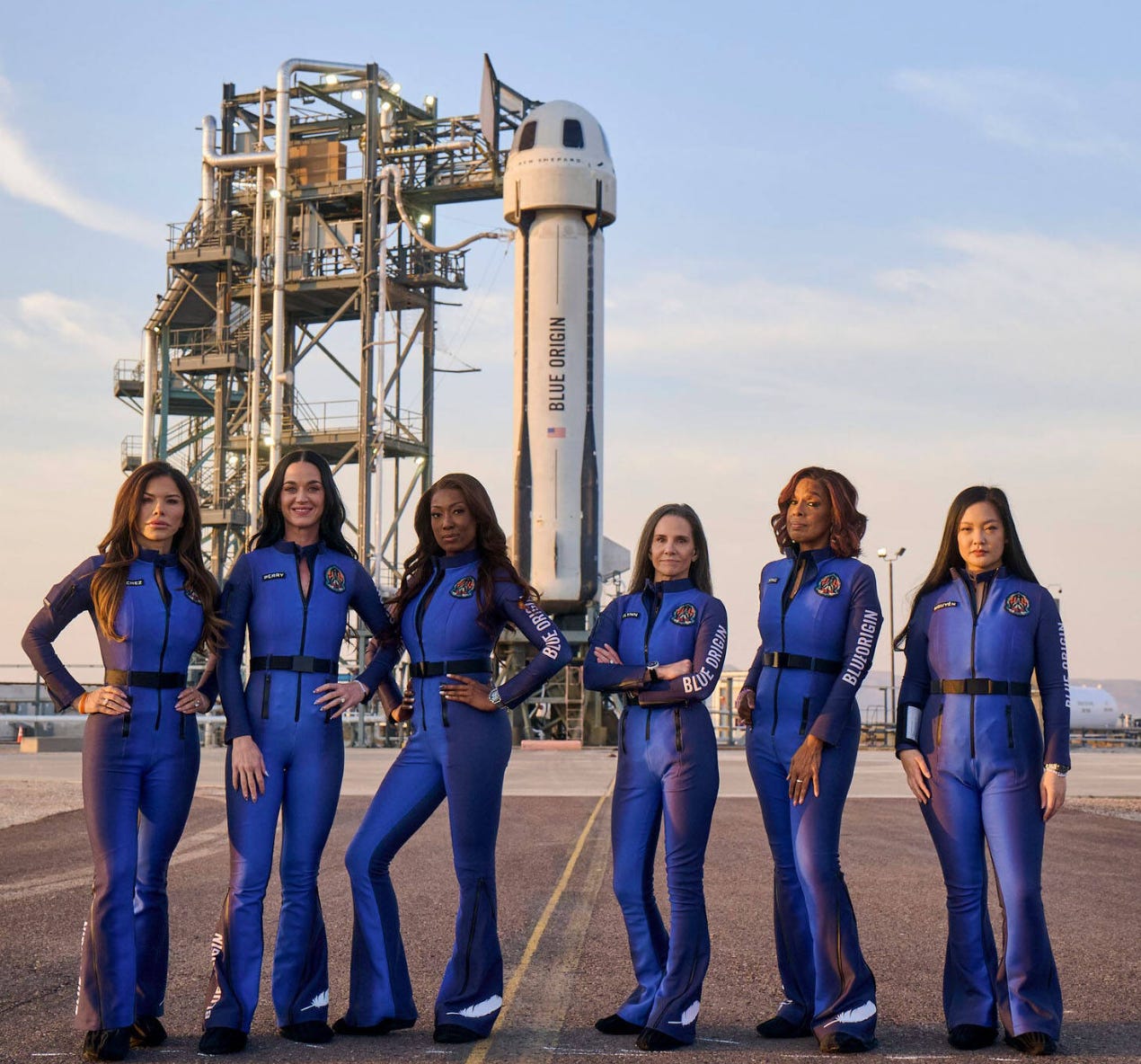Maybe TikTok Can Get Me to Space
A physicist’s take on space tourism and the future of exploration
Maybe if I become TikTok famous, Jeff Bezos will take me to space.
I’m only half-joking. But those were the actual words that came out of my mouth on Monday.
And honestly, there’s a lot wrong with that sentence. For starters, I’m a physicist, and a PhD student in Materials Science and Engineering. In a few years, I’ll fall squarely into the demographic of someone who is actually qualified to become an astronaut. The only major technicality? I don’t (yet) know how to fly a plane. But according to NASA’s website, all you need is a master’s degree in a STEM field, and they’ll teach you the rest — including how to fly. So, technically speaking, I could get there.
Anyway, all of this started because on Monday, April 14, 2025, Blue Origin sent six women to space for eleven glorious minutes.
The crew included:
Pop star Katy Perry
Journalist Gayle King
Engineers Amanda Nguyen and Alisha Bowe
Film producer Kerianne Flynn
And Lauren Sanchez, Jeff Bezos’ fiancée

A list that left me, and probably a lot of other women in STEM, feeling some complicated things.
And for the record, women have been to space! Real, trained, mission-ready women. One of them is Suni Williams, a NASA astronaut who’s spent 608 days in orbit over her career. You might know her as one of the astronauts who was stuck aboard the ISS earlier this year. That was not a joyride but an actual mission: living and working in microgravity, running spacewalks, piloting spacecraft, and even being the first person to run a marathon on a treadmill aboard the ISS.
So yes, seeing Amanda Nguyen and Alisha Bowe on the Blue Origin flight, two brilliant women with real STEM credentials, was exciting. But the conversation around the launch still left me wondering whether the future of space exploration is veering more toward celebrity space tourism than science.
On the one hand, it’s a milestone. An all-woman space flight is a moment worth celebrating. Representation matters, visibility matters, and seeing a group of women from varied industries, not just the typical astronaut archetype, floating around in zero gravity is undeniably cool.
But on the other hand, I couldn’t shake the feeling that a seat I’m working for academically and professionally is, for now, reserved for someone with a better Instagram following.
The thought of space has always sparked human imagination, and for many, the barriers to entry have always felt insurmountable. You needed to be the best of the best in STEM, a decorated pilot, a Navy officer, a physical specimen. Today? Space is an 11-minute adventure, available for the right price, the right connections, or the right level of cultural relevance.
And that leaves me, and maybe you, wondering: what is the future of space exploration actually going to look like? Are we heading toward a world where billionaires and influencers corner the market on a human experience once reserved for the most rigorously trained? Or will the doors open wider for people like me: scientists, engineers, the curious, the persistent?
Either way, I want to go to space. And I’m not giving up on the idea that I’ll earn that seat, not just buy it, borrow it, or be invited for clout.
So until then, I’ll be in the lab. And maybe on TikTok, too. You know, just to cover all the bases.
Until Next Time,
Dylan McAfee




Could I just argue that Gail King isn’t really a bona fide journalist but more a culture commentator?